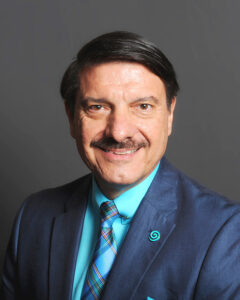By Deborah Jeanne Sergeant
Experts: Smoking raises risks exclusive to men, including erectile dysfunction, impotence, lower sperm count and greater risk of prostate cancer
In addition to the increased risks for health issues that both genders experience, smoking also raises risks exclusive to men, including erectile dysfunction, impotence, lower sperm count and greater risk of recurrence and dying for those diagnosed with prostate cancer.
In addition, smoking “is a causative factor in not only lung diseases but cardiovascular diseases. It affects the circulatory system and contributes to heart attacks,” said Albert Rizzo, chief medical officer of the American Lung Association.
Heart disease remains the leading cause of death in the US, followed by cancer and, in fourth place, stroke. Of American men aged 18 and older, 14.1% smoke cigarettes, according to the Centers for Disease Control and Prevention.
Rizzo said that 80% of lung cancers are related to smoking.
“Some studies I’ve run across show there may be differences relating to sex,” Rizzo said.
Some theorize that overall, men may be affected by cigarette smoking worse than women because they smoke more often, inhale deeper or smoke longer in duration than women.
The psychology behind smoking matters when it comes to cessation.
Although many women began smoking to stay slim — smoking can depress appetite — or deal with stress, men tend to smoke for different, more complex reasons that are harder to shake.
Embracing a healthful diet and exercise regimen can help control weight and engaging in self-care can help manage stress. Advertising campaigns for cigarette companies have made smoking appear rugged, manly and appealing to men, such as the long run of the Marlboro Man. The self-image of rebellion and independence hooked many men decades ago and made quitting more difficult. Smoking became part of their personality.
“It’s an addiction, one of the strongest known, and rather than giving lip service to the fact that it’s a bad habit that will kill you, what we offer can help you quit,” Rizzo said.
He recommends checking into the seven FDA-approved cessation medications to support an effort to quit, along with counseling to address the psychological reasons people smoke. A supportive environment at home and work can also promote success.
“Most have to try 10 to11 times before they’re successful,” Rizzo said. “They need a strong support group of family friends and counseling. They need support from those they live with. If your wife or husband smokes, it’s a great time for both of you to quit.”

The American Lung Association’s Freedom from Smoking program has proven helpful for many people who want to quit. It “uses techniques based on pharmacological and psychological principles and methods designed to help tobacco users gain control over their behavior and break their addiction,” according to the website. “Because no single quit method is effective for all tobacco users, the program includes a comprehensive variety of evidence-based, proven-effective cessation techniques. The curriculum also includes information about nicotine replacement therapy (gum, inhalers, patches, lozenges and nasal spray) and other FDA-approved smoking cessation medications such as Zyban and Chantix.”
Tom Porpiglia, licensed mental health counselor and owner of Life Script Counseling Services in Rochester, provides emotional freedom technique (EFT) to help people quit. EFT involves tapping on targeted places where nerves intersect to soothe the nervous system. That is why it is also called “tapping.” Because many men smoke to self-medicate stress, anxiety and depression, EFT can help address their underlying issues and rewire the brain so that smoking does not meet those emotional needs.
“EFT works on the body’s energy system, sending signals into the brain,” Porpiglia said. “It can unwire the connections that are keeping you addicted. The brain has neuroplasticity.”
He teaches clients how to tap themselves so that at any time, they can quell a craving. Many times, clients find that they do not have nicotine withdrawal symptoms.

